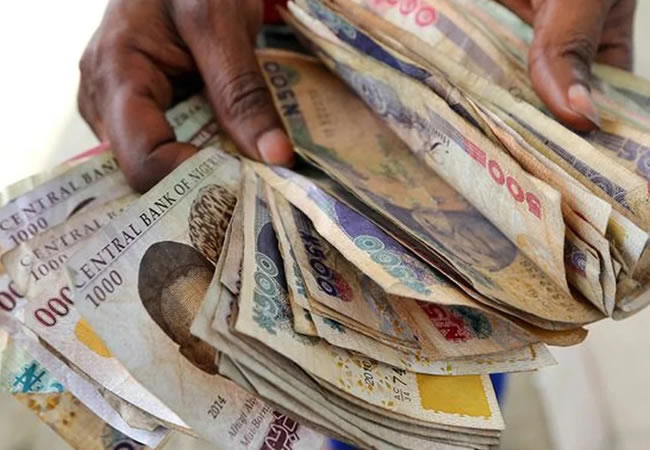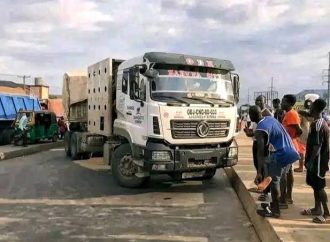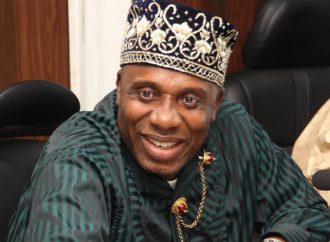"FG Begins Revalidation of Social Register to Boost Cash Transfer Programme" 2.3 Million Households Cleared as Biometric Verification Intensifies The Federal Government has initiated a comprehensive revalidation exercise of the National Social Register to strengthen the Conditional Cash Transfer (CCT) programme, which was introduced to alleviate the economic burdens associated with recent fiscal
“FG Begins Revalidation of Social Register to Boost Cash Transfer Programme”

2.3 Million Households Cleared as Biometric Verification Intensifies
The Federal Government has initiated a comprehensive revalidation exercise of the National Social Register to strengthen the Conditional Cash Transfer (CCT) programme, which was introduced to alleviate the economic burdens associated with recent fiscal reforms.
This effort is in response to both internal challenges and external concerns over the slow rollout of the programme, which was launched in 2023 following the removal of petrol subsidies and the unification of Nigeria’s exchange rate.
During a press briefing in Abuja, the Director General of the National Identity Management Commission (NIMC), Abisoye Coker-Odusote, revealed that 2.3 million households have now been revalidated and cleared to receive cash transfers under the new scheme.
According to her, the revalidation is a critical component of the National Social Safety Nets initiative and aims to ensure that government funds are accurately disbursed to genuinely eligible Nigerians.
“We don’t want to pay people who no longer exist,” Coker-Odusote declared, stressing the need for robust identity verification systems. “This is the reason for identity—ensuring there is a verifiable source of truth and identity credentials that can be used to authenticate beneficiaries in real time.”
She emphasized that the process is being conducted in collaboration with other agencies and stakeholders to guarantee transparency and efficiency, and to safeguard the integrity of the initiative.
The CCT programme, supported by a $800 million World Bank loan, is designed to reach 15 million vulnerable households. However, only 5.6 million—about 37 percent—have received at least one tranche of payment two years after its launch. This slow pace has drawn criticism from the World Bank, which expressed concern in its latest Nigeria Development Update titled “Building Momentum for Inclusive Growth.”
The report urged Nigerian authorities to expedite the verification process and expand coverage to reach the most economically at-risk populations.
Biometric Verification: A Necessary Bottleneck
Responding to the World Bank’s concerns, Special Adviser to the President on Economic Affairs, Tope Fasua, explained that the delay is largely due to the need for biometric validation, a step required to prevent fraud and ensure that funds go to the intended recipients.
“If you know how the World Bank disburses its funds, they are very careful,” Fasua said in an interview with Arise TV. “Indeed, some might argue that it creates bottlenecks, but it is better to be careful than sorry. This is public money, and transparency must be the watchword.”
Fasua confirmed that the Federal Ministry of Finance already has records of those who have received funds, and the focus now is on scaling up distribution while maintaining the programme’s credibility.
He called on Nigerians to exercise patience as the government works to improve the process. “The integrity of the process is more important than the speed. We are dealing with public funds meant for the most vulnerable in society,” he said.
Ensuring Accountability and Accurate Targeting
The revalidation effort is not just an administrative formality—it’s central to building trust in Nigeria’s social intervention systems. With widespread reports of ghost beneficiaries and misplaced allocations in past social programmes, the current exercise seeks to re-establish credibility.
Coker-Odusote pointed out that with the aid of NIMC’s robust identity database, authorities can now biometrically verify at least one adult member per household, a prerequisite for eligibility under the renewed scheme.
“The job is to ensure that the people who truly need help are the ones receiving these payments,” she stated.
The renewed focus on digital identification and verification is also part of a broader effort to modernize Nigeria’s approach to public service delivery, using technology to plug leakages and enhance efficiency.
Looking Ahead: A More Inclusive Social Protection System
While only a fraction of the target population has been reached so far, government officials remain optimistic. With 2.3 million households now revalidated and ready to receive support, the momentum is expected to build rapidly in the coming months.
The Federal Government’s commitment to transparency and proper targeting is aimed not just at meeting international funding requirements, but also at restoring public confidence in social welfare programmes.
For millions of low-income Nigerians facing the brunt of economic reforms, the Conditional Cash Transfer remains a lifeline. The success of the revalidation process will determine not only how quickly relief reaches them, but also how effectively the government can deliver on its promise of inclusive growth.




















Leave a Comment
Your email address will not be published. Required fields are marked with *